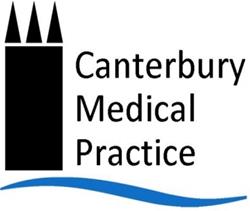Tests and Results
Results
When you attend for a test of any kind you will be told how long you should expect to wait for the results.
The Nurse or Doctor will advise you whether a follow up appointment is required or whether a telephone call to the reception to check your results is sufficient.
Please note that we do have a strict policy regarding confidentiality and data protection. In this respect we will only give out results to the person they relate to unless that person has given prior permission for their release or if they are not capable of understanding them.


Blood Tests
A blood test is when a sample of blood is taken for testing in a laboratory. Blood tests have a wide range of uses and are one of the most common types of medical test. For example, a blood test can be used to:
- assess your general state of health
- confirm the presence of a bacterial or viral infection
- see how well certain organs, such as the liver and kidneys, are functioning
A blood test usually involves the phlebotomist taking a blood sample from a blood vessel in your arm and the usual place for a sample is the inside of the elbow or wrist, where the veins are relatively close to the surface. Blood samples from children are most commonly taken from the back of the hand. The child's hand will be anaesthetised (numbed) with a special cream before the sample is taken.
You can find out more about blood tests, their purpose and the way they are performed on the NHS website.
Due to COVID-19 the phlebotomy service was looking at ways of managing the number of patients within their waiting areas to improve social distancing.
An appointment system has been introduced to allow patients to book their blood test appointment online here
You will receive a text message and email with the date and time of your chosen appointment, upon completion of the booking process. If you need to cancel or amend the appointment you can click the link in the confirmatory text message and cancel the appointment and rebook for a more convenient time.
X-Ray
An X-ray is a widely used diagnostic test to examine the inside of the body. X-rays are a very effective way of detecting problems with bones, such as fractures. They can also often identify problems with soft tissue, such as pneumonia or breast cancer.
If you have a X-ray, you will be asked to lie on a table or stand against a surface so that the part of your body being X-rayed is between the X-ray tube and the photographic plate.

An X-ray is usually carried out by a radiographer, a healthcare professional who specialises in using imaging technology, such as X-rays and ultrasound scanners.
You can find out more about x-ray tests, how they are performed, their function and the risks by visiting the NHS website.

Ultrasound
An ultrasound is a painless examination, which is carried out using sound waves emitted through a transducer. These sound waves create an image enabling the sonographer to assess and examine the internal organs of the abdomen.
If the clinician decides that you need to have an ultrasound scan they will refer you. This may be done at one of our surgeries or up at the hospital, depending on the nature of the scan.
The sonographer will be able to provide you with an estimated time frame for your results.
INDEX - Services
- Online Consultation
- The NHS App
- Clinics & Services
- Test Results
- e-Referral Service
- Electronic Prescription Service
- Cardiology Services
- Childhood Vaccinations
- Contraception
- Counselling & Psychotherapy
- Flu Vaccination
- Other NHS Therapy Services
- Private Fees
- Private Therapists
- Screening Services
- Summary Care Record
- Travel Clinic
- Find NHS Services
We use cookies to help provide you with the best possible online experience.
By using this site, you agree that we may store and access cookies on your device. Cookie policy.
Cookie settings.
Functional Cookies
Functional Cookies are enabled by default at all times so that we can save your preferences for cookie settings and ensure site works and delivers best experience.
3rd Party Cookies
This website uses Google Analytics to collect anonymous information such as the number of visitors to the site, and the most popular pages.
Keeping this cookie enabled helps us to improve our website.

